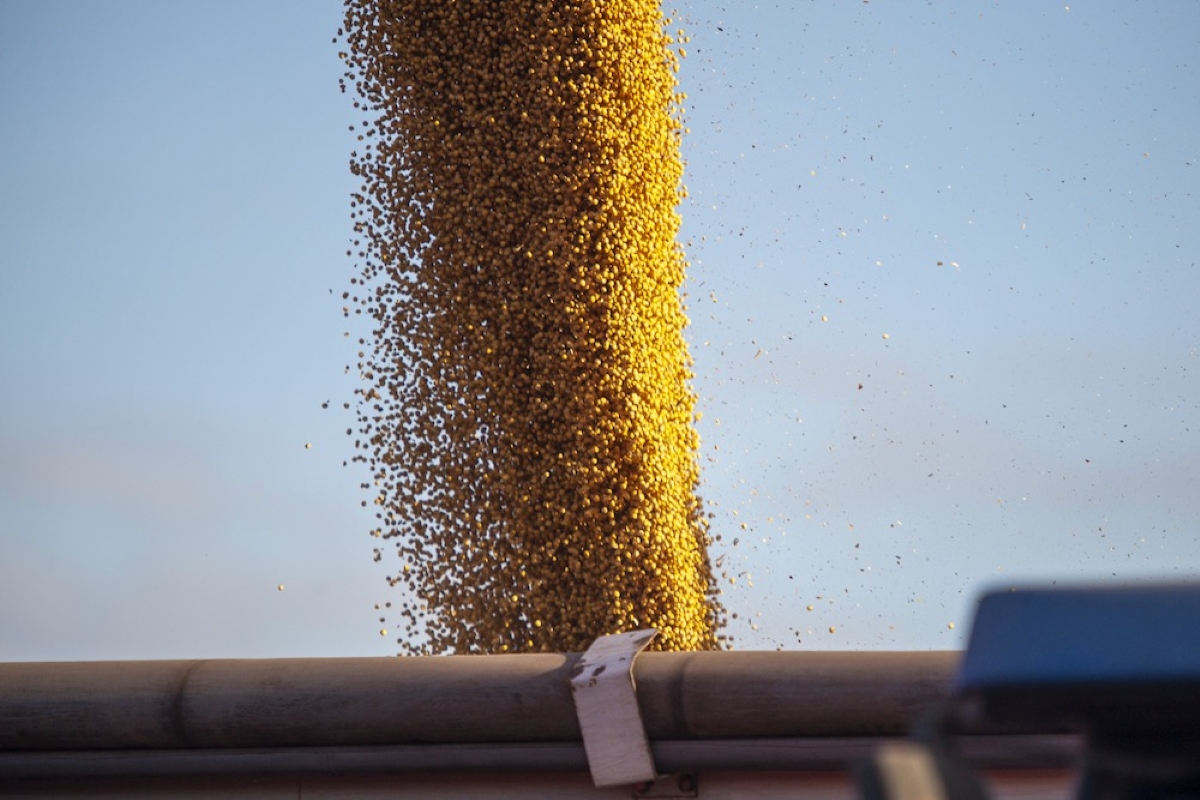CNS Canada — When considering the pattern of how grain is shipped by rail in Canada, it’s very unlikely increased oil shipments would interfere, according to Quorum Corp.
“That’s largely because the flow of grain is predominantly to the West Coast and Thunder Bay,” said Quorum president Mark Hemmes.
About 80 per cent of Canadian grain is exported through Vancouver and Prince Rupert, B.C. and Thunder Bay, Ont., he said, and “the other 20 is going either to Eastern Canada or down into the United States.”
Read Also

Brazil to reap record soy crop in 2025/2026, increase exports
Brazil’s Conab said the country will reap a record soybean crop of 177.6 million tons in the 2025/2026 harvest year, according to data released on Thursday.
However, Hemmes acknowledged a possibility that increased oil traffic could adversely affect grain shipments to the U.S.
“The oil is looking to go predominantly to the Gulf Coast, some goes into the Midwest and a little bit goes to the East Coast,” he said.
Should oil shipments begin to turn toward Canada’s West Coast, that could pose problems.
“Right now I don’t think that’s in the cards, but who knows with 7,000 cars added. Given that Alberta oil is trading at a less-than-optimum level, some people may see that as a cheap alternative to buying more expensive product elsewhere. But right now, it’s not a concern.”
As part of the Alberta government’s plan to assist its struggling oil industry, the government is acquiring 7,000 rail cars, along with a sufficient number of locomotives to transport 120,000 barrels of crude oil per day.
Grain shipments have largely been very good so far this winter, Hemmes said, although Canadian Pacific Railway had a couple of delays.
“They had a derailment in the Macdonald tunnel and pretty heavy snowfall through the Rockies and to the Cascades. So they had some delays for about a week,” he said, but noted CP has recovered.
“Other than that, knock on wood, things have been really good this winter.”
Vancouver’s bout with rain of late has slowed the loading of grain onto vessels, but hasn’t posed any major problems, according to Hemmes.
“(It’s) been quite a few years since any terminal in Vancouver has gotten so full of grain that they could not unload rail cars,” he said.
— Glen Hallick writes for Commodity News Service Canada, a Glacier FarmMedia company specializing in grain and commodity market reporting.













